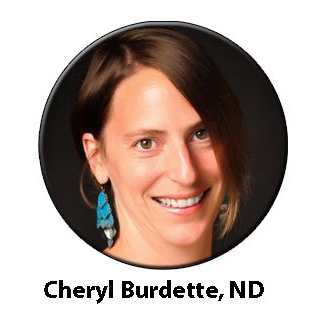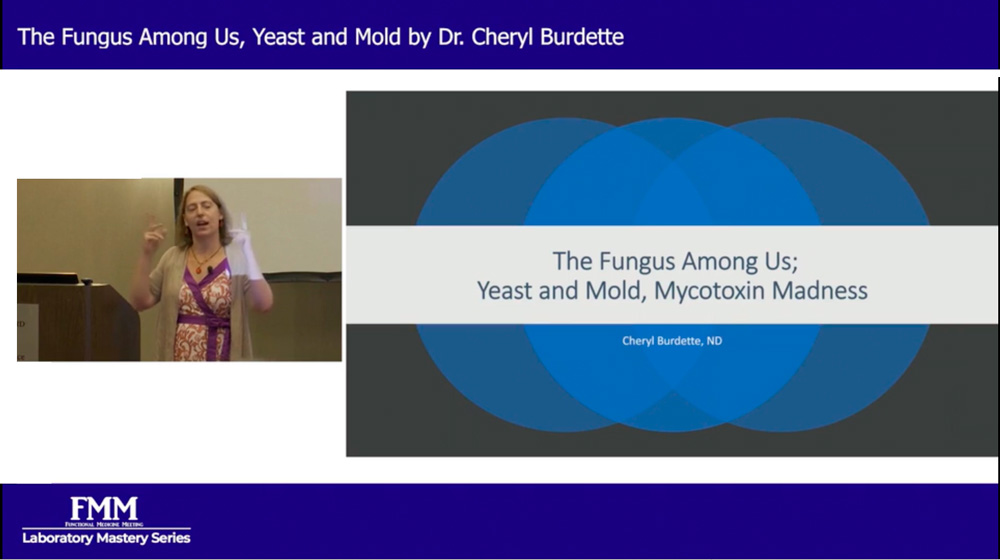Description
Instructor: Dr. Cheryl Burdette
In chronic conditions it is often difficult to know how to peal back the layers of the onion because so many symptoms are overlapping and confound one another. While often there is a diagnosis of a neurologic condition, or chronic fatigue, it is not the root cause of what is going on. Underlying an ICD-10 codes diagnosis is often something that fans the fire of inflammation, and yeast and mold are often culprits. Not only do they fan the fire of inflammation, they make the common successful treatments to these conditions less effective. Mold and yeast are responsible for symptoms such as brain fog and fatigue and will often cause increasing chronic issues. For example, we know that yeast will increase a TH17 response. When this branch of the immune system goes up, more inflammatory cells are crated. While yeast may not be the only issue, it creates immune dysfunction making it difficult for the patient to get well. Mold is also another issue that contributes to chronic disease. Mold can skew immune function by increasing a TGF-Beta response, which in attempt to calm immune function can cause immune suppression in some areas. Mold goes beyond respiratory issues, creating mitochondrial disruption creating fatigue from a cellular level out. We will focus on strategies to identify root cause, and to treat accordingly.
Components covered include:
Yeast, Stool Testing, Vitamin D, Urinary Amino Acids, Organic Acids, Mold, C4a, C3a, MMP-9, TGF-Beta, MSH, ADH, VEGF, VIP, Treg cells, sIgA, neurologic, cardiovascular, gut and immunological connections
Key Learning Objectives:
Identify testing parameters around yeast testing
Identify testing parameters around mold testing
Identify common signs and symptoms that are caused by mold and yeast
Identify dysfunction in specific sets of the immune system caused by mold and yeast
I. Candida Albicans
A. Candida and TH17 response
B. Candida as it relates to MS and other Autoimmune conditions
C. Candida albicans and Saccharomyces, looking at relationships and competition
D. Candida albicans and sIgA, the interrelationship
II. Mycotoxins
A. Which molds are most responsible
B. Symptoms that are a result of mold
C. Immunosuppression from mycotoxin
III. Common Systems and Expression of pathology
A. Neurologic connections to mold and yeast
B. Cardiovascular connections and mold and yeast
C. Gut Based pathology from mold and yeast
D. Immunologic shifts based on yeast and mold
 Dr. Cheryl Burdette
Dr. Cheryl Burdette
Current Position: Director of Naturopathic Medicine at Progressive Medical. I serve as a staff physician, and educational director. I have been in private practice since 2001. I manage the Naturopathic residency program that is focused on integrative medicine and nutritional biochemistry. I am the Research and Outreach director for Xymogen, and Inc.500 supplement company, and serve on their BOA. I am owner and president of a nutritional lab, Dunwoody Labs, for which I design clinical profiles and train clinicians in their utilization. At Dunwoody labs I am also involved in nutritional trials and translational research. I am chief advisor for on-going clinical trial department of the laboratory. I also serve on an independent IRB giving feedback concerning various studies in the area of integrated medicine. I lecture internationally and nationally for IFM, A4M, MMI, and ACAM as well as many other conferences. I wrote and designed the curriculum for Advanced Medicine’s Academy online certification program. I am called upon yearly to do grand rounds at all the major Naturopathic medical schools. I teach Clinical and Nutritional Oncology at the University of Bridgeport and am part of the faculty at the University of Miami that is the first allopathic school to require integrative medicine. I am also adjunct faculty at George Washington University, the first PhD program in integrative medicine.

